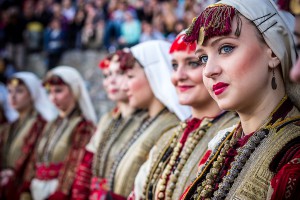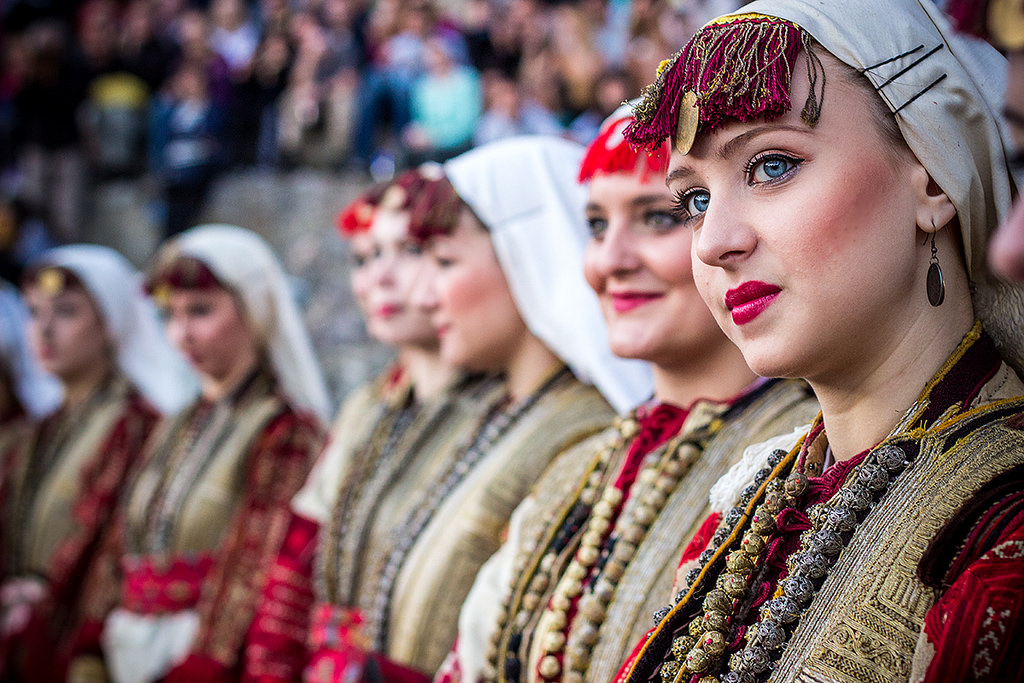Wedding is a costly celebration, ask anyone who has ever been married. In some countries, a couple is expected to invite anywhere from 100 to 400 guests to the ceremony. In others, the bride’s relatives might have to save up money for a dowry, which is then given to the groom’s family as “payment” for the bride. Not many families can afford to uphold these traditions. Striving to eliminate this injustice, governments and local communities in some countries have found a way out: collective weddings.
A collective wedding is a matrimonial ceremony that is held for several couples simultaneously. It can be hosted by a government, a civil organisation, an individual donor, or in some cases by the couples’ parents. Collective weddings are popular in India, Japan, South Korea and Muslim countries, such as Iran or Afghanistan.

Marriage has a sacral meaning for many people around the world. Thus, there is small wonder that even families from lower classes tend to spend what little they have on these occasions. By being unable to afford these expensive celebrations, they fall in a vicious circle of debt and poverty. However, in collective weddings all the costs are either shared by participants or are paid by a third party. Thus, men and women from underprivileged families get a chance to a decent life without getting themselves into debt bondage for the rest of their lives.
This is especially relevant for the families that plan to marry off their daughters. In some countries the parents of the bride have to pay a dowry, so that the girl might have a good start in the new family. While paying a dowry is officially illegal in most countries, it is still happening in India, Bangladesh and other places. For a girl, paying a large dowry is one way to “buy” herself into a better future. If her family is wealthy enough, she may choose a well-educated man from a respected family; if not, she might have to settle for someone less prosperous. Apart from being humiliating in its nature, the dowry tradition creates many cases of domestic violence towards women. For instance, in 2012 one Indian woman was killed every hour because her parents were unable to pay the dowry that the groom’s family demanded.
When it comes to collective weddings, the dowry is often (but not always) paid to the bride by the government or by the organisation holding the wedding ceremony. The happy couple may also receive a wedding gift, or a “bridal gift”, consisting of furniture, electronic devices and other useful things. These gifts help to take the financial burden from bride’s relatives and reduce the likelihood of domestic violence to occur in the new family.
One of the organisations holding collective weddings in Pakistan is called Minjah Welfare Foundation. As of now, the organisation has married over 700 couples and spent over one million Euro on this purpose. According to the Foundation’s rules, each spouse can invite up to fifty guests to the ceremony. It also takes care of “a proper wedding atmosphere”, the dowry and bridal gifts such as a double bed, a gas stove, a sewing machine, etc. In total, one couple’s wedding’s cost is worth 150,000 Pakistani rupees, or approximately 1360 Euro.

In India, a famous businessman, Mahesh Savani, is known for his support in organising marriages for “fatherless” girls. He started by marrying off two girls several years ago, and in 2014 he sponsored wedding ceremonies for one hundred eleven couples. All these women who received aid from Savani had lost their fathers and had an underprivileged background. They were, therefore, unable to sponsor their own weddings. Savani did not only pay for the ceremony itself, but also made generous gifts to the couples.
In Kano, a predominantly Muslim Nigerian state, a series of mass weddings were organised by local authorities. The main aim of these ceremonies was to promote family values andto reduce the number of divorces and births out of wedlock. Apart from organising the ceremonies, the authorities also paid for the brides’ dowries and gave some useful presents to the newly married couples. Just as in other cases, the main beneficiaries of the ceremonies were people from lower-class families. Special attention was given to widowed and divorced Nigerian women, who often end up being involved in prostitution and begging in the streets. Kano’s authorities also played the role of a match-maker by helping some women to find a suitable partner.
However, special attention should be paid to the fact that all marriages should be conducted with the full consent of those getting married, especially girls. In many cases, collective weddings protect women from abuse and injustices; but if somebody is married against their will, the whole meaning of collective weddings is lost. The obligation to marry the person one does not like or an obligation to marry unwillingly is an abuse itself. Still, when conducted correctly, collective weddings solve many of the problems that underprivileged families are confronted with, such as dowry payments and domestic violence as well as helping newly weds start out a new life together.
By Victoria Yantseva
Image credit:
Picture 1: Marjan Lazarevski, licensed under CC BY-NC 2.0
Picture 2: jit bag, licensed under CC BY 2.0










